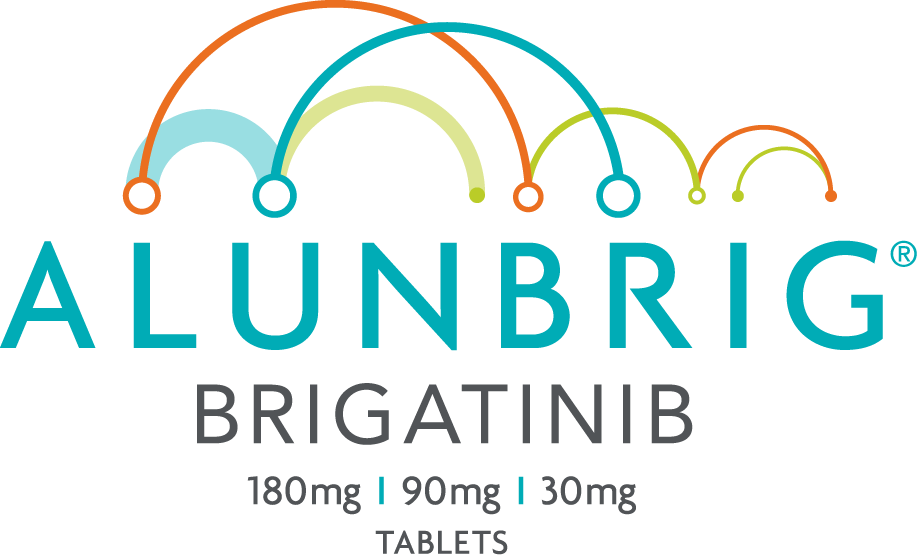Learn About Treatment With ALUNBRIG® (brigatinib) for ALK+ Metastatic Non-Small Cell Lung Cancer (mNSCLC)

Eric & Meghan's Story
Learn about how Eric and Meghan have navigated Eric’s ALK+ mNSCLC diagnosis, their experience with ALUNBRIG, and how together they are living with lung cancer.
Eric was diagnosed with ALK+ mNSCLC and was taking ALUNBRIG as prescribed at the time of recording.
ViewHide Transcript
[Meghan]
Eric and I have been married for about 10 years, we have a pretty vibrant life.
A lung cancer diagnosis made no sense to us.
Often people say it's like having the rug pulled out from underneath you, when you get a diagnosis like that. I correct them. And I say it's like the whole floor, coming out from underneath you.
When we got that phone call or news from the physician of his cancer diagnosis, I knew it would be a major inflection point in our life.
[Eric]
Prior to diagnosis, my health started to change in such a way that I was having difficulty breathing. And I was coughing quite a bit.
The symptoms that I had, definitely felt like someone standing on my chest. I was also having difficulty sleeping on my back, which led me to a lot more sleepless nights.
It came up in a conversation with my wife and after she said, “Hey, I'm concerned that your coughing is becoming uncontrollable. I think it's time for you to visit your primary care physician.”
It was a very short period of time, I was able to go from an x-ray to a CT in the same day. And then within two days, I was doing a biopsy.
The first time that I heard the word cancer, from my physician. I will never forget those words.
At age 41. I was diagnosed with stage four ALK positive non-small cell lung cancer. Receiving a diagnosis of this sort, made no sense to me.
[Meghan]
We've obviously subsequently learned that anyone with lungs can get lung cancer.
[Eric]
It took me a while to understand the impact of having brain metastases. And at that point, I was honestly so defeated and downtrodden.
As my treatment options were explained to me, I had the choice of a few different TKIs. I consulted with my family, my oncologists and other primary care specialists to pick the best option for me based on the side effects and the dosing. And for me, that choice was ALUNBRIG.
ALUNBRIG is a prescription medicine used to treat adults with non-small cell lung cancer, NSCLC, that has a certain type of abnormal anaplastic lymphoma kinase, ALK, gene and that has spread to other parts of your body. It is not known if ALUNBRIG is safe and effective in children.
The most important factor when selecting ALUNBRIG was how it would impact my life. And I looked at the side effects and the dosage. And those two combined, made it feel that it would be the least impactful to my everyday life.
I've experienced bradycardia nausea and stomach pain while taking ALUNBRIG. But these are not all of the possible side effects. And everyone is different.
Speak to your healthcare provider about all the potential side effects with ALUNBRIG.
[Meghan]
The treatment was very easy to incorporate into our lives. Being able to take one pill a day was of a significant benefit to him as well.
[Eric]
I started ALUNBRIG on the seven-day starter dosage of 90 milligrams, after which I increased to 180 milligrams, which I currently take.
[Meghan]
From my perspective, Eric has responded really well to ALUNBRIG.
Fortunately, it had a rapid reduction in his tumor volume. He was able to tolerate the medicine.
[Eric]
After reading my scan reports, one of the terms frequently used is “unremarkable”. That effectively means that while my tumors are still present, they're not growing or spreading. So, I will happily claim to be an “unremarkable cancer patient”.
[Meghan]
When Eric was first diagnosed with lung cancer, he was given a prognosis of nine to 12 months. That timing then aligned with our 10-year wedding anniversary. So, our goal became to make it to the anniversary.
And as we did, we elected to have a vow renewal ceremony with a number of family and friends.
We're able to take less of the focus on his treatment and the worry and put it more so into creating memories together.
[Eric]
The best piece of advice that I've received from my care is that you don't have to hit a homerun your first at bat. You have to get on base. You have to stay healthy enough to take advantage of technology and its advances.
And that's what gives me hope.
